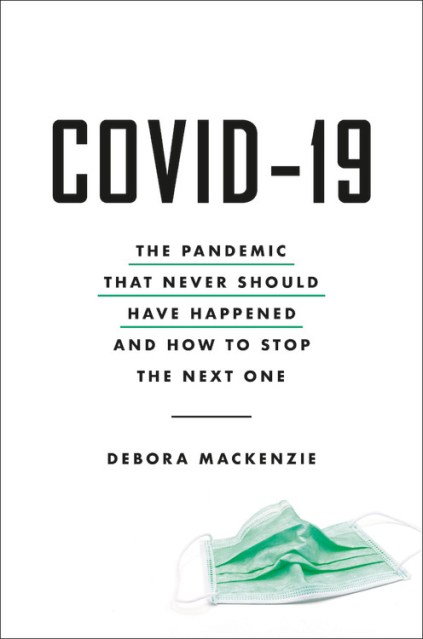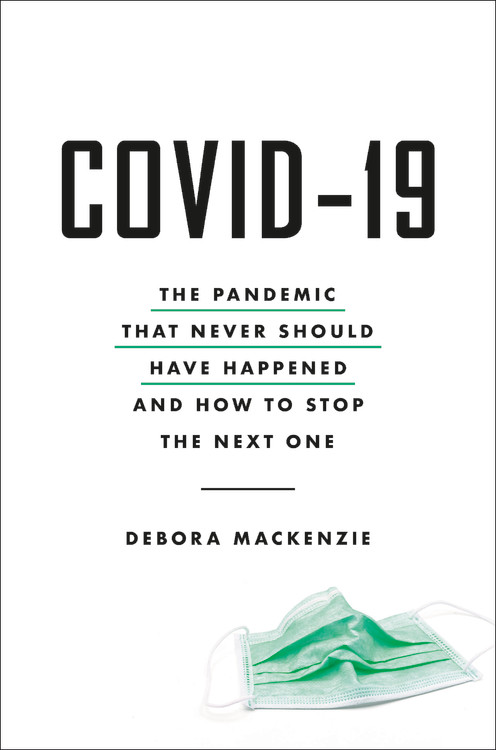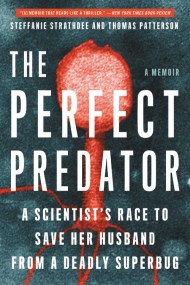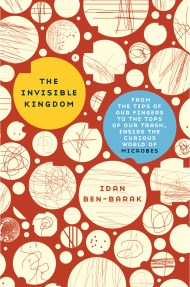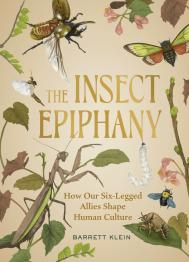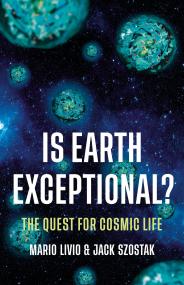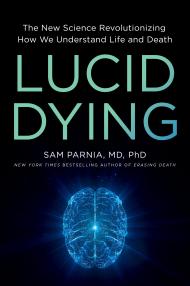By clicking “Accept,” you agree to the use of cookies and similar technologies on your device as set forth in our Cookie Policy and our Privacy Policy. Please note that certain cookies are essential for this website to function properly and do not require user consent to be deployed.
COVID-19
The Pandemic that Never Should Have Happened and How to Stop the Next One
Contributors
Formats and Prices
Price
$27.00Price
$34.00 CADFormat
Format:
Also available from:
• One of the Financial Times’ Best Science Books of 2020 •
In a gripping, accessible narrative, a veteran science journalist lays out the shocking story of how the COVID-19 coronavirus pandemic happened and how to make sure this never happens again
Over the last 30 years of epidemics and pandemics, we learned nearly every lesson needed to stop this coronavirus outbreak in its tracks. We heeded almost none of them. The result is a pandemic on a scale never before seen in our lifetimes. In this captivating, authoritative, and eye-opening book, science journalist Debora MacKenzie lays out the full story of how and why it happened: the previous viruses that should have prepared us, the shocking public health failures that paved the way, the failure to contain the outbreak, and most importantly, what we must do to prevent future pandemics.
Debora MacKenzie has been reporting on emerging diseases for more than three decades, and she draws on that experience to explain how COVID-19 went from a potentially manageable outbreak to a global pandemic. Offering a compelling history of the most significant recent outbreaks, including SARS, MERS, H1N1, Zika, and Ebola, she gives a crash course in Epidemiology 101–how viruses spread and how pandemics end—and outlines the lessons we failed to learn from each past crisis. In vivid detail, she takes us through the arrival and spread of COVID-19, making clear the steps that governments knew they could have taken to prevent or at least prepare for this. Looking forward, MacKenzie makes a bold, optimistic argument: this pandemic might finally galvanize the world to take viruses seriously. Fighting this pandemic and preventing the next one will take political action of all kinds, globally, from governments, the scientific community, and individuals—but it is possible.
No one has yet brought together our knowledge of COVID-19 in a comprehensive, informative, and accessible way. But that story can already be told, and Debora MacKenzie’s urgent telling is required reading for these times and beyond. It is too early to say where the COVID-19 pandemic will go, but it is past time to talk about what went wrong and how we can do better.
Over the last 30 years of epidemics and pandemics, we learned nearly every lesson needed to stop this coronavirus outbreak in its tracks. We heeded almost none of them. The result is a pandemic on a scale never before seen in our lifetimes. In this captivating, authoritative, and eye-opening book, science journalist Debora MacKenzie lays out the full story of how and why it happened: the previous viruses that should have prepared us, the shocking public health failures that paved the way, the failure to contain the outbreak, and most importantly, what we must do to prevent future pandemics.
Debora MacKenzie has been reporting on emerging diseases for more than three decades, and she draws on that experience to explain how COVID-19 went from a potentially manageable outbreak to a global pandemic. Offering a compelling history of the most significant recent outbreaks, including SARS, MERS, H1N1, Zika, and Ebola, she gives a crash course in Epidemiology 101–how viruses spread and how pandemics end—and outlines the lessons we failed to learn from each past crisis. In vivid detail, she takes us through the arrival and spread of COVID-19, making clear the steps that governments knew they could have taken to prevent or at least prepare for this. Looking forward, MacKenzie makes a bold, optimistic argument: this pandemic might finally galvanize the world to take viruses seriously. Fighting this pandemic and preventing the next one will take political action of all kinds, globally, from governments, the scientific community, and individuals—but it is possible.
No one has yet brought together our knowledge of COVID-19 in a comprehensive, informative, and accessible way. But that story can already be told, and Debora MacKenzie’s urgent telling is required reading for these times and beyond. It is too early to say where the COVID-19 pandemic will go, but it is past time to talk about what went wrong and how we can do better.
-
"Essential, enlightening reading in a time of panic and plague."Kirkus (starred review)
-
"Science journalist MacKenzie delivers a wise and accurate account of the COVID-19 pandemic, supplying readers with an objective assessment of where we are, how we got here, and how to prepare for future emerging infections."Booklist (starred review)
-
"[A] readable, essential account for all readers."Library Journal (starred review)
-
"A heart-pounding telling of the misadventures that led to one of the worst pandemics in history. A story that we all think we know, but don't. And a story whose lessons, if unlearned, we will be condemned to repeat."Dr. Paul Ofitt, Author of Pandora's Lab and Vaccinated, Director of the Vaccine Education Center at the Children's Hospital of Philadelphia
-
"Whether it's cultural practices with animals like bats, or the fear and delay in labeling it pandemic, to a woeful lack of funding for public health and vaccine research, or the misguided notion that disease will recognize boundaries just because people do-MacKenzie's fascinating book gives us the scope and scale to be able to put this pandemic in perspective and, it begs the question, will we learn from this in time to prevent to next one."Molly Caldwell Crosby, Bestselling Author of The American Plague: The Untold Story of Yellow Fever, The Epidemic That Shaped Our History
-
"A fascinating behind the scenes look . . . If someone asks you why the COVID19 epidemic happened and how we can prevent the next one, hand them this book."Steffanie Strathdee, PhD, Associate Dean of Global Health Sciences, University of California San Diego, and co-author of The Perfect Predator: A Scientist's Race to Save Her Husband from a Deadly Superbug
-
"This definitely deserves a read - the first of the post mortems by a writer who knows what she's talking about."Laura Spinney, Author of Pale Rider: The Spanish Flu of 1918 and How It Changed the World
-
"You could not hope for a better guide to the pandemic world order than Debora MacKenzie, who's been on this story from the start. This is an authoritative yet readable explanation of how this catastrophe happened - and more important, how it will happen again if we don't change."Tim Harford, author of The Undercover Economist, Adapt, and Messy
-
"Mackenzie, [a] feted writer with New Scientist, puts her experience of covering emerging diseases to excellent use here. She analyses clearly and authoritatively how the coronavirus pandemic played out, what governments should have done, and what we need to do when it happens again - as it undoubtedly will."Financial Times
-
Magnificent.New Scientist
-
"The best book for understanding how we got here."Inverse.com
-
"[COVID-19] offers an informed and authoritative picture of the origin and character of the pandemic. It is a superb, accessible one-stop shop to bring readers up to date on the science behind this crisis."The Lancet
-
Quickly spiralling from a local outbreak to a global crisis, Debora MacKenzie provides a down-to-earth account of how the COVID-19 pandemic has played out so far and, crucially, how the world can be better prepared for the ever-present risk of another epidemic.Peter Piot, Author of No Time to Lose: A Life In Pursuit Of Deadly Viruses, Director of the London School of Hygiene and Tropical Medicine, former head of UNAIDS, and Covid-19 survivor
-
"Debora MacKenzie is a leading science journalist, with vast experience writing about pandemic threats and neglected diseases. She uses her background to 'hit the ground running' on one of the first books written on the emergence of COVID-19. As politicians and elected leaders increasingly work to change the narrative on COVID-19 on their steps to first contain and mitigate the pandemic, Debora's efforts lay it all out in stark terms."Dr. Peter Hotez, Author of Vaccines Did Not Cause Rachel's Autism and Dean of the National School of Tropical Medicine at Baylor College of Medicine
-
"Immensely engaging to the casual reader, while providing a treasure trove of inside information, details, and perceptions that makes this an essential reference...In our present climate of regrettable tweets, unverified facts, and deliberate misinformation, this timely book provides a delightful and important excursion into the world of outbreaks, epidemics, and pandemics."Tim Sly, Professor Emeritus, Ryerson University School of Occupational and Public Health
- On Sale
- Jul 14, 2020
- Page Count
- 304 pages
- Publisher
- Grand Central Publishing
- ISBN-13
- 9780306924248
Newsletter Signup
By clicking ‘Sign Up,’ I acknowledge that I have read and agree to Hachette Book Group’s Privacy Policy and Terms of Use
